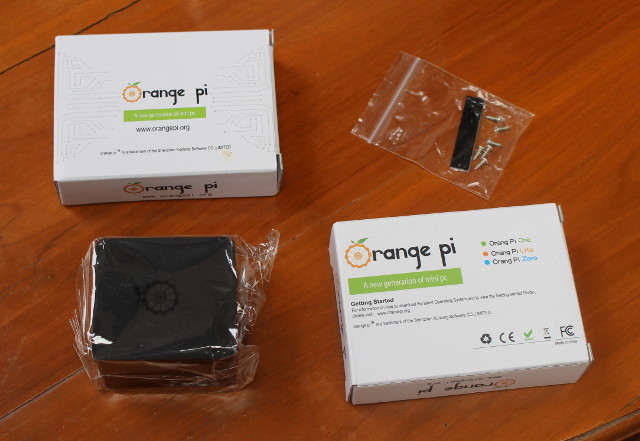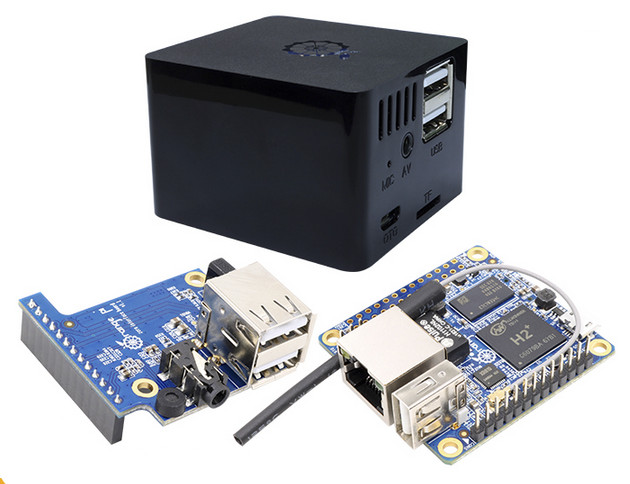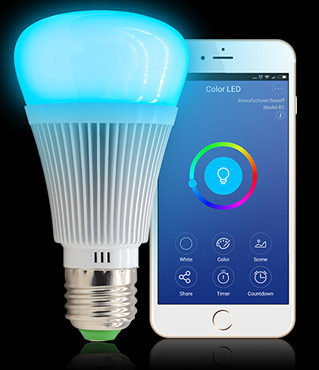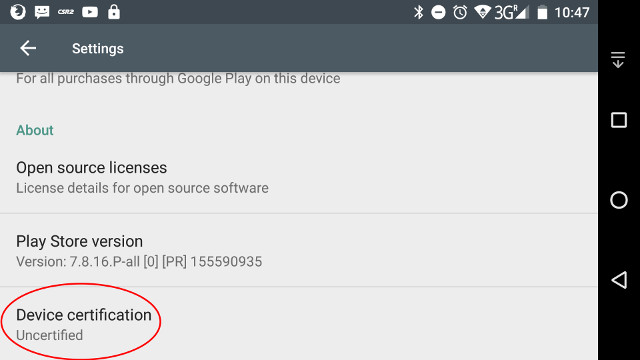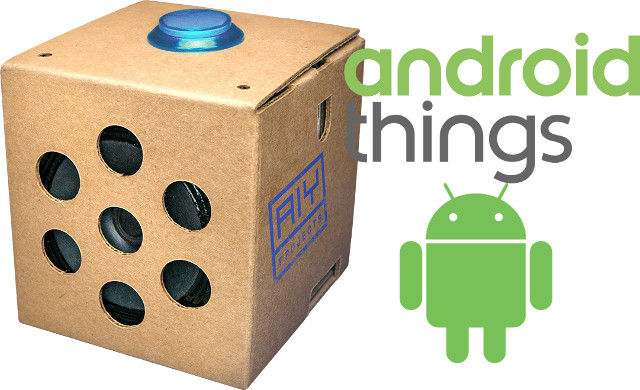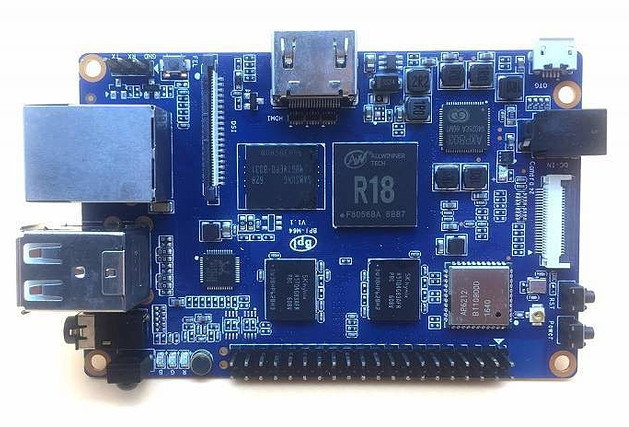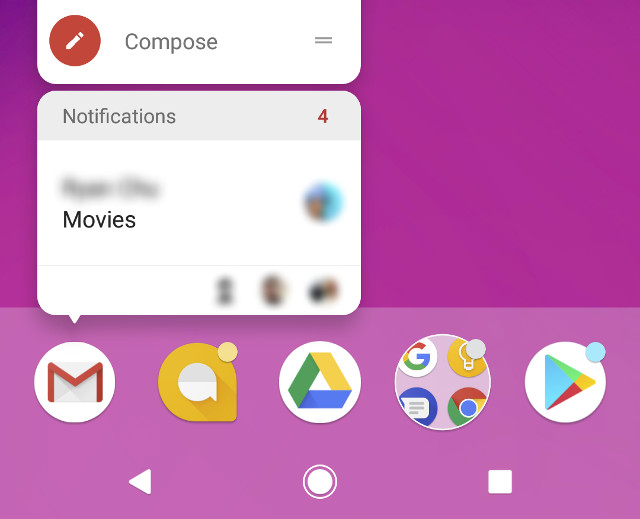Augmented reality has been a thing for many years, and Qualcomm released an Augmented Reality SDK working with Android as soon as 2011, but Google has only just released a preview of ARCore augmented reality SDK for Android in order to bring AR capabilities to existing and future Android phones. ARCore works without any additional hardware (e.g. no 3D depth camera needed such as Tango), relies on Java/OpenGL, Unity or Unreal engines, and focuses on three things: Motion tracking – ARCore determines the position and orientation of the phone as it moves using both the phone’s camera to observe feature points in the room and IMU sensor data, in order to keep virtual objects accurately placed. Environmental understanding – This handles placement of AR objects on surface like a table or a floor, with the SDK detecting horizontal surfaces using the same feature points it uses for motion tracking. Light […]
How to Setup an Orange Pi Zero DIY Smart Speaker with Google Assistant SDK
A preview release of Google Assistant SDK working with Raspberry Pi 3 and other ARMv7 boards was released in May, and soon after, AIY Projects Voice Kit was offered for free with Raspberry Pi Magazine in order to a complete smart speaker kit working with RPi 3. I wanted to try it on one of FriendlyELEC or Shenzhen Xunlong Allwinner board, since all we need is audio input and output, and an Internet connection. Earlier this month, I came across Orange Pi Zero Set 6 Kit that had all I needed: Orange Pi Zero ARM Linux board, an expansion board with built-in microphone and audio output jack, and a cute and small case to neatly put everything together. Orange Pi Zero Set 6 Kit Unboxing and Assembly Shenzhen Xunlong sent me the kit so that I can try it out. The package includes two Orange Pi packages, the plastic case, […]
$13 Orange Pi Zero Set 6 Kit Could Make an Inexpensive DIY Google Home Alternative
Since Google released the Google Assistant SDK for Raspberry Pi 3, and other ARMv7 boards, I thought I should it try myself on one of the tiny headless boards I have, as you just need audio output and a microphone. I first planed to use NanoPi NEO board with NanoHAT PCM5102A audio board, a cheap USB microphone, and pair of speakers, but this morning, I’ve come across Orange Pi Zero Set 6 kit that looks perfect for this applications and sells for just $12.95 plus shipping ($18.27 in total for me) with Orange Pi Zero board, Orange Pi Zero interface board, and a case. Orange Pi Zero board is powered by Allwinner H2+ quad core Cortex A7 processor with 512MB RAM, and can run the required Ubuntu/Debian distribution using one of the Armbian images, and connected to the Internet over Ethernet or WiFi, however if you want to use the […]
Sonoff B1 is an $18 Hackable WiFi RGB LED E27 Light Bulb based on ESP8285 WiSoC
Earlier this year, I wrote about an ESP8266 based RGB LED “AI Light” lightbulb that was hacked to run ESPurna open source firmware. That’s all good, except some people tried to get one, and ended with a different hardware. So if you’d like something that’s more of a “sure thing”, ITEAD Studio has designed Sonoff B1 dimmable RGB LED E27 light bulb based on ESP8285 processor, and with a “4 pads” to allow for custom firmware flashing. Sonoff B1 hardware specifications: Typical Lumen Output – 600lm Beam Angle – 120 degrees typ. Color Temperature – 2800K-6500K & RGB full color Connectivity – WiFi 802.11 b/g/n @ 2.4GHz Power Supply – 90-260V AC 50/60Hz via E27 base Power Consumption – Light off: 0.5W Max; rated power: 6W Temperature Range – Operating: 0ºC~ 40ºC; storage: -20ºC~ 80ºC Operating Humidity – 5%-90% RH Sonoff B1 with stock firmware can be controlled using the […]
Android Play Store Tidbits – Blocking Unlocked/Uncertified/Rooted Devices, Graphics Drivers as an App
There’s been at least two or three notable stories about the Play Store this week. It started with Netflix not installing from the Google Play Store anymore on rooted device, with unclocked bootloader, or uncertified devices, and showing as “incompatible”. AndroidPolice contacted Netflix which answered: With our latest 5.0 release, we now fully rely on the Widevine DRM provided by Google; therefore, many devices that are not Google-certified or have been altered will no longer work with our latest app and those users will no longer see the Netflix app in the Play Store. So that means you need to Google Widevine DRM in your device, which mean many Android TV boxes may stop to work with Netflix. You can check whether you device is certified by opening Google Play and click on settings, Scroll to the bottom and check Device Certification to see if it is Certified or Uncertified […]
Android Things Developer Preview 4 Released with Google Assistant SDK Support
Earlier this month, Google released a preview of the Google Assistant SDK that works on boards running Debian like the Raspberry Pi 3, and even launched AIY Project Voice Kit for the later. You can now play with Google Assistant on Android Things as the company has just released Android Things Developer Preview 4 with support for Google Assistant SDK. The operating systems works on any Android Things certified devices, but the example instructions for Google Assistant API on Android Things also include steps to use Raspberry Pi 3 board together with AIY Projects Voice kit. The developer preview 4 also adds I2S to the peripheral I/O API and is demonstrated in the aforementioned example, and new hardware support with NXP i.MX7D based Pico Board equipped WiFi & Bluetooth, Ethernet, USB ports, an audio jack, and an I/O expansion port. Android Things DP4 also brings the ability for developers to […]
Banana Pi BPI-M64 Board Gets Allwinner R18 Processor with Google Cloud IoT Core Support
Banana Pi BPI-M64 board was launched with Allwinner A64 processor, but a few days ago, I noticed the board got an option for Allwinner R18. Both processors are likely very similar since they are pin-to-pin compatible, and Pine64 was first seen with Allwinner R18, so I did not really feel it was newsworthy. But today, Google announced Google Cloud IoT Core cloud service working with a few app partners such as Helium and Losant, as well as several device partners including ARM, Marvell, Microchip, Mongoose OS, NXP… and Allwinner, having just announced the release of an Allwinner R18 SDK with libraries supporting Google Cloud IoT Core. Let’s go through the board specifications first which are exactly the same as for the original BPI-M64 board, except for the processor: SoC – Allwinner R18 quad core ARM Cortex A53 processor with Mali-400MP2 GPU System Memory – 2GB DDR3 Storage – 8GB eMMC […]
Google Releases Android O Developer Preview 2, Announces Android Go for Low-End Devices, TensorFlow Lite
After the first Android O developer preview released in March, Google has just released the second developer preview during Google I/O 2017, which on top of features like PiP (picture-in-picture), notifications channels, autofill, and others found in the first preview, adds notifications dots, a new Android TV home screen, smart text selection, and soon TensorFlow Lite. Google also introduced Android Go project optimized for devices with 512 to 1GB RAM. Notifications dots (aka Notification Badges) are small dots that show on the top right of app icons – in supported launchers – in case a notification is available. You can then long press the icon to check out the notifications for the app, and dismiss or act on notifications. The feature can be disabled in the settings. Android TV “O” also gets a new launcher that allegedly “makes it easy to find, preview, and watch content provided by apps”. The […]



